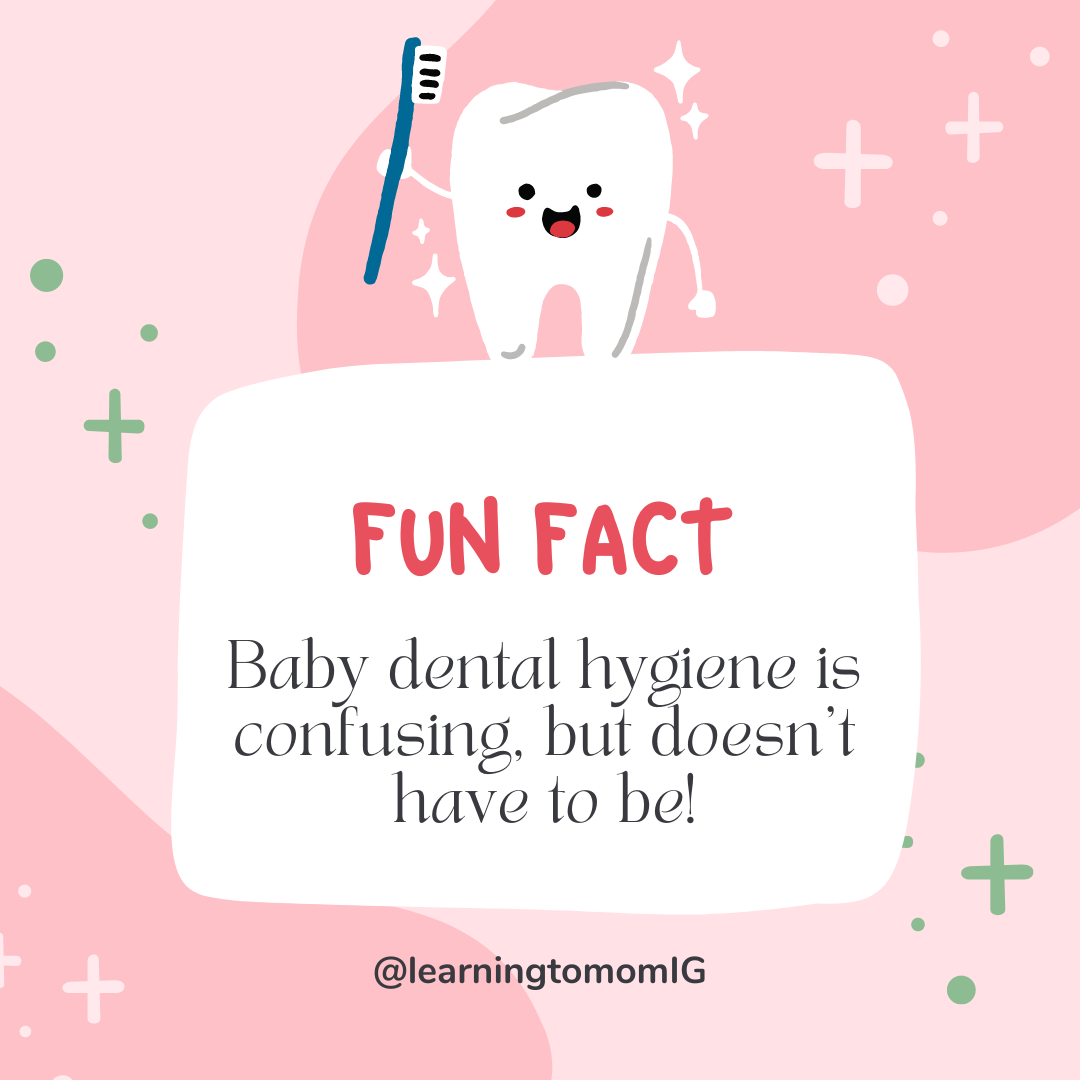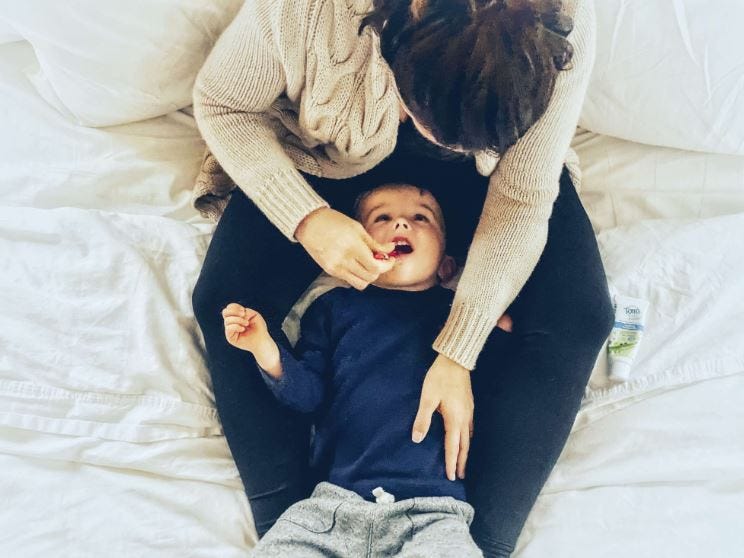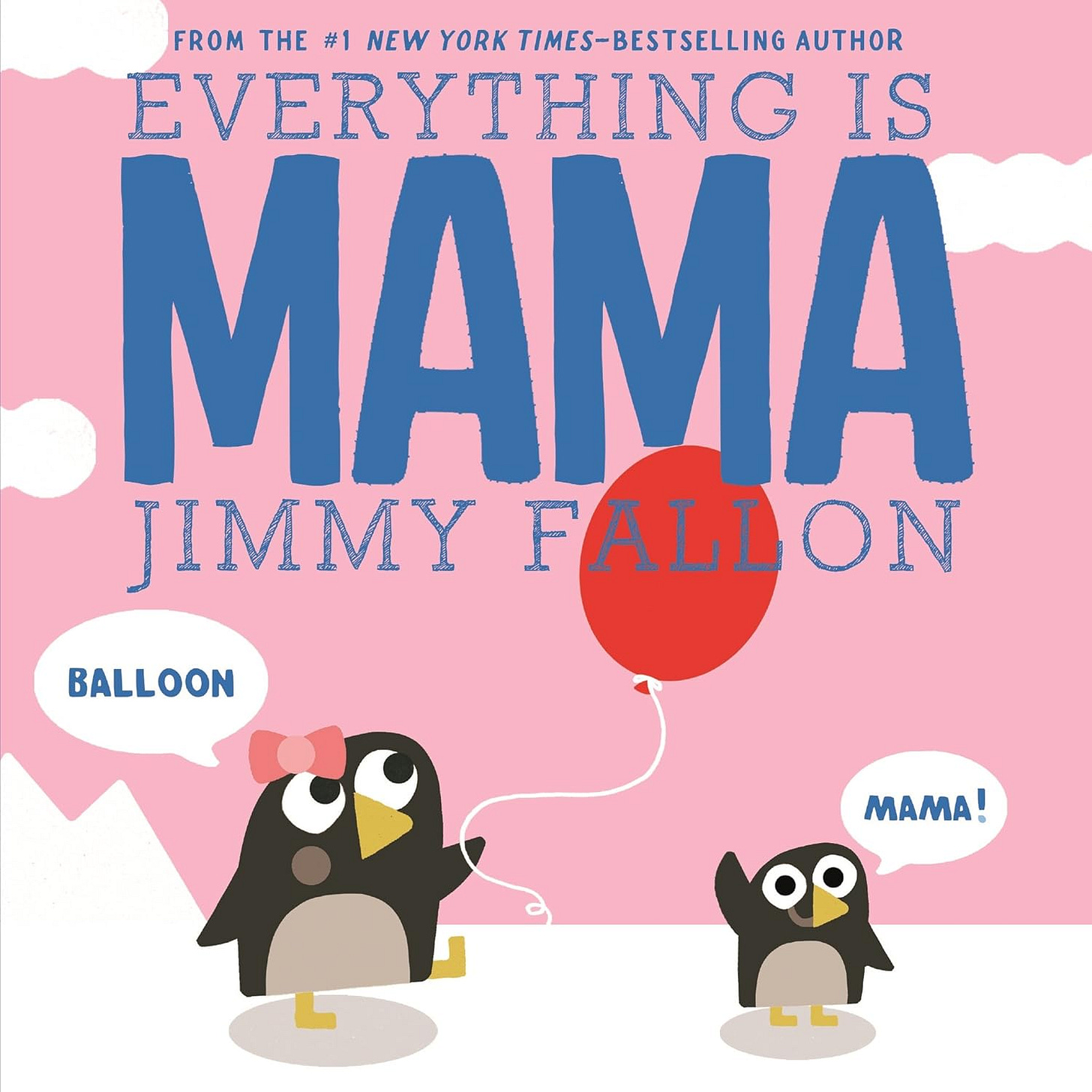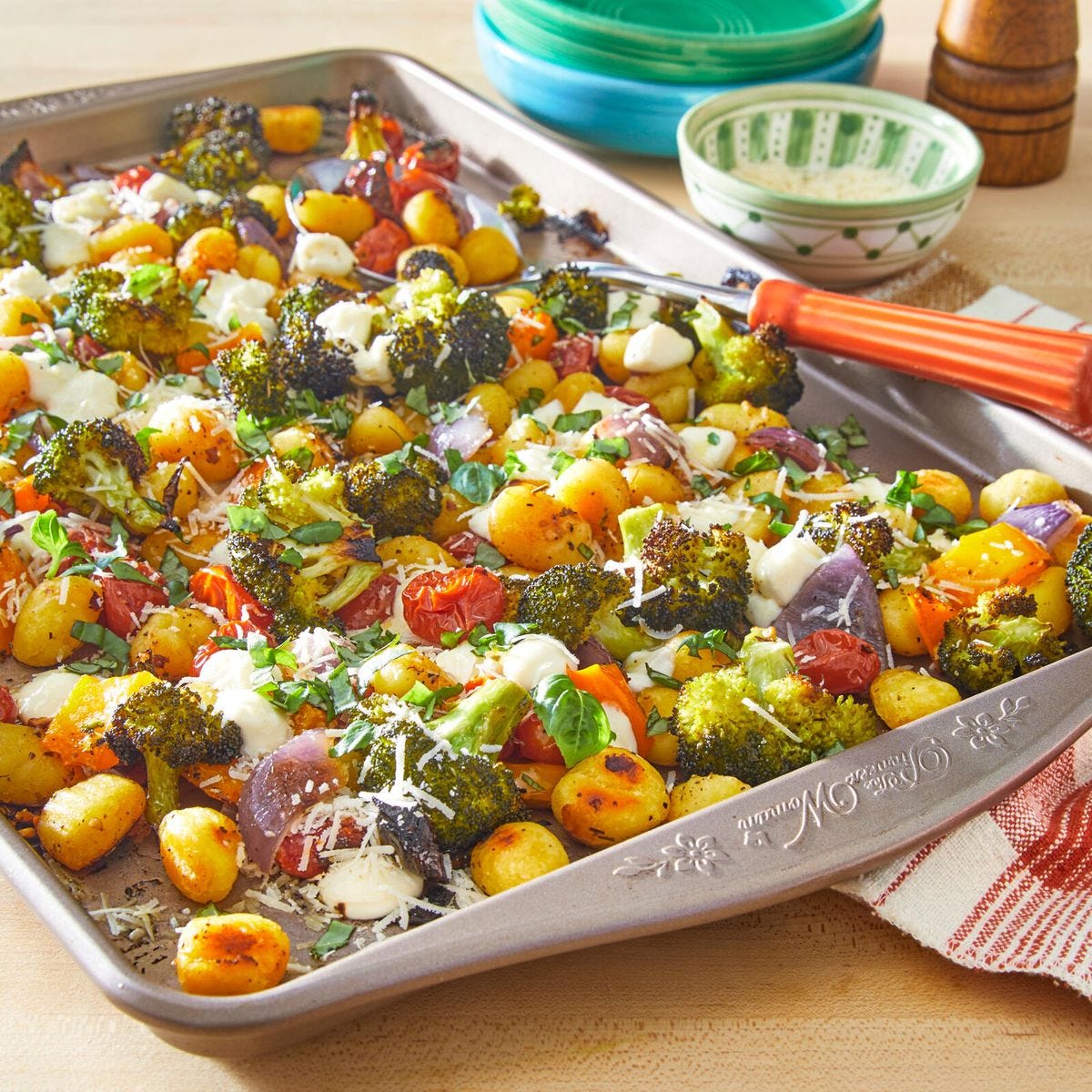Good morning and Happy Mother’s Day! Building on our last post about teething, I have been pretty confused about what to do once my son actually got his first teeth. The Instagram algorithm, as usual, shares videos with conflicting information that overwhelm me and even my online research is not very consistent. To get some clarity, I chatted with dental hygiene expert, Andie Kyros Simeakis, RDH, MPH, PHDH, to talk about what parents need to do once babies finally get their teeth.
Read on for Andie’s tips below.
When should I start cleaning my baby's gums and how often? This can be started right away. The earlier you introduce an oral hygiene routine, the better the baby's response will be to toothbrushing at a later age.
What's the best way to clean my baby's gums before teeth come in? It is a good practice to use a washcloth on the gums after feedings even before any teeth come in.
When should I start brushing my baby's teeth and how often? As soon as you see the first tooth come through the gums, begin brushing after feedings or, at minimum, before the child goes to bed for the night. We want to limit the amount of time that sugar from food and drinks are contacting the teeth. Remember, milk, breastmilk, and formula all have sugars too! We can do this by removing any residual food and drink from the teeth as often as possible. Even using a soft baby washcloth to wipe the teeth and gums is sufficient until more teeth come in.
What type of toothbrush should I use for my baby? A silicone finger brush, a teething brush, or a regular baby toothbrush are great options. Make sure to use a soft or extra-soft bristled toothbrush, as it will be gentle and somewhat soothing on the baby's gums. One with handles on the sides for the child to grip is great and you can help guide the brush around the teeth and gums.
Is toothpaste necessary for babies, and if so, when should I start using it? Can you share some recommendations? The American Dental Association, American Academy of Pediatrics, and the American Academy of Pediatric Dentistry, all recommend the use of fluoride toothpaste, even for babies. What we have to be considerate of is the amount. Children under the age of 3 are to use a thin smear of fluoride toothpaste, the size of a grain of rice. This is just enough so they don’t have to spit it out.
After they are 3-years and older (when they can spit it out), upgrade to a pea-sized amount, same as adults. Any fluoride toothpaste will do, however some children find minty flavors to be too "spicy", so opting for a kid-friendly flavored option (like bubble gum, or fruit flavors) may be most well-received and tolerable.
What should I do if my baby refuses to let me brush their teeth? If your baby is resistant to letting you brush their teeth, you're not alone! Don't give up and don't avoid the task, because it’s for their own good! Sometimes it may feel like you are "torturing" them to brush their teeth, but a good analogy is that babies often put up a fight when you are changing their diaper, however we don't avoid that task! There are a few tips and techniques to try if your baby is resistant to brushing.
Try distracting them by singing a song while brushing or counting their teeth out loud.
You can lay them on their back with their head between your legs. A great example of this is in this Instagram reel by Timnath Kids Dentistry. Have their arms out wide and use your legs to gently hold their arms down.
If you have two adults, you can sit facing each other with the "knee to knee" technique and lay the baby's head in one of the adults’ laps who will brush the teeth, while the other adult gently holds the arms and legs down. This may be a technique that the dental professional will use with you and your child at their early dental appointments as well.
Role modeling by brushing your own teeth can be helpful, especially as they get older.
For older kids, you can try standing behind them and brushing their teeth .
When should I schedule my baby's first dental appointment? It is recommended by the time you see their first tooth, or at least by their first birthday. A good idea is to bring your baby along to your own dental appointments. Have them sit on your lap in the dental chair. When selecting an office to take your child to, pediatric dental offices are best for little ones as they often have very kid-friendly waiting rooms and treatment areas.
Though it’s recommended to make a dental appointment by their first birthday, some dentists may ask that you bring the child back when they are 3 years old for actual dental services, like a cleaning and fluoride, because they will be better able to sit and lay in the chair and should have close to all of their 20 baby teeth. After this age, continue visiting the dentist every 6 months to establish a healthy dental visit routine and also to allow the opportunity for a dental checkup, in which if there are any early signs of dental issues, they can be caught early and addressed.
What should I expect at these early dental appointments? These early-age appointments often are short in length with a quick polish of the teeth and a fluoride treatment, which is painted on with a little brush. Note that the later you delay your child's first dental appointment, the more opportunity they have to associate the dental office with fear. The earlier to desensitize the topic of visiting the dentist, the better!
Are there any foods or drinks that are particularly bad for my baby's teeth? Items with added sugars, particularly juices. Limiting the amount of sugary items or carbohydrate-heavy foods (which break down into sugars) is key. Sadly, there is a common condition termed "baby bottle tooth decay", which occurs when the child goes to sleep with a bottle or sippy cup. Though it can be tough, try to avoid allowing the child to go directly to sleep without brushing after a bottle so we don’t leave their teeth covered in sugar while they sleep. This allows bacteria to breed on the sugar, which creates "plaque", that sticky film that when left on the teeth for long periods of time causes tooth decay. Again, this not only pertains to juices, but also to milk, breast milk, and formula. If your child is fussy and will not go to sleep without their bottle, try diluting the liquid with water to limit the amount of sugars. Continue to add more water overtime, which help wean them as well.
When baby's full set of teeth come in, should I start flossing them? Only once the teeth are touching should you begin flossing. Floss picks may be a little easier to use than traditional string floss, but be very gentle around the gums.
Overall, baby teeth are very important. They help the child form sounds, words, and they hold the space for the adult teeth to come in. Baby teeth are just as important as adult teeth, so we need to take good care of them. Although they will fall out eventually, the health of the baby teeth can predict the health of the adult teeth... and we don't get another set after those!
Andie Kyros-Simeakis has held her license as a Registered Dental Hygienist for 14 years and for most of her career, has been in a role of implementing oral health education programs to various populations. She is currently employed with the Colgate Bright Smiles Bright Futures mobile dental van program, which travels to various community sites, spreading the importance of oral health through education and proper oral hygiene instruction and demonstration to children under the age of 12, as well as their "grown-ups".
A weekly roundup of personal tips and helpful finds
Eva Mendes Wants to Break the Supermom Myth. Eva Mendes shares her refreshing take on motherhood, advocating for ditching the pressure of being a "super mom" and embracing imbalance and imperfection. I related to her desire to want it all, but to often feel unbalanced between the different versions of you. (Glamour)
Love You Forever, but Don’t Overdo It. You may have seen this viral post about how the classic book Love you Forever did not age well, but there’s a whole set of similar books whose messages may not be the most helpful for children. I was personally sad to see Rainbow Fish on this list, but the message of giving up what makes you unique to be accepted isn’t something I want to teach my kid.
Baby Book Rec: Everything is MAMA! By Jimmy Fallon in honor of mother’s day. There’s also a DADA’s version for Father’s Day.
Cook: Sheet pan Gnocchi. I recently discovered the shelf-stable gnocchi at Trader Joe’s (I know, late to the party) and it has now become my go-to when we need a quick weeknight dinner. If you want to stray from the sheet pan, I often toss them in a hot skillet until they get crispy, then mix them into a pesto sauce with some roasted veggies and voila! Dinner. (The Pioneer Woman)
Finally, this has nothing to do with motherhood, but I was fascinated by this deep dive into Taylor Swift’s publicist and how much power she has in the Taylor-verse. I also love the mystery surrounding this badass woman, even down to her name.
Thank you for subscribing to “Learning to Mom”! This is a labor of love and all recommendations are my own. Proceeds from affiliate links go directly to support the ongoing research and creation of this newsletter. I am just starting to build the community so if you enjoyed what you read, please click the referral link below and share with your fellow moms!









